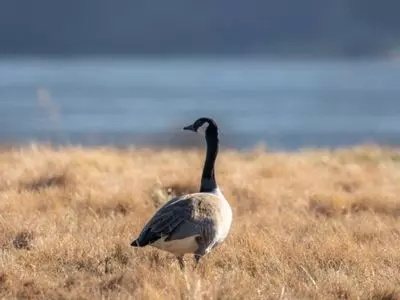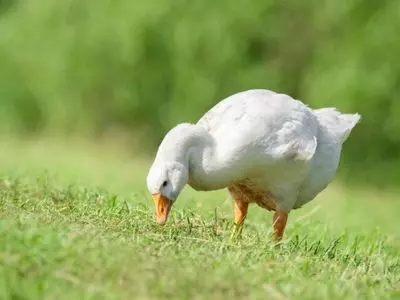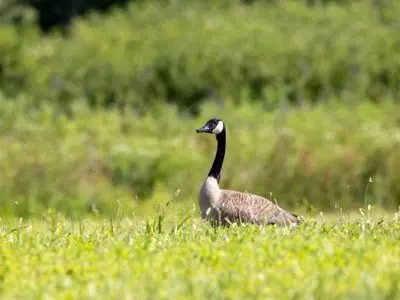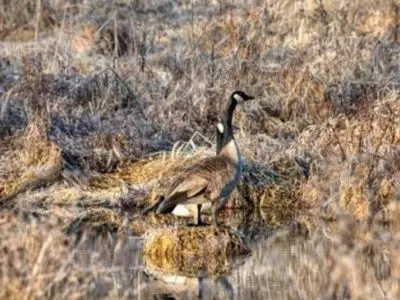No products in the cart.
Geese
What Happens When a Goose LOSES its Flock?
Geese can sometimes be seen traveling alone, but they don’t particularly enjoy this. Geese tend to travel together and be within their flock most of the time. If you’ve ever wondered why geese sometimes travel alone then stay tuned as we dive into how geese behave and what happens when a goose loses its flock.
*This post may have affiliate links, which means I may receive commissions if you choose to purchase through links I provide (at no extra cost to you). As an Amazon Associate I earn from qualifying purchases. Please read my disclaimer for additional details.
The Benefits of Being in a Flock

Protection From Predators
Geese are safer in numbers, so whether they’re flying or on the ground, they can take turns resting and sleeping, making it more difficult for predators to single out one bird.Access to Food
Geese that live in flocks have a greater chance of finding food as they can work together to forage and let others know about areas with available food.Opportunities for Mate Selection
Geese have more opportunities to meet potential mates by being in a flock. Read our related article, ‘When Do Geese Lay Eggs?’ to learn more about the mating season.Better Chances of Survival
Flocks of geese can migrate to new locations when the weather changes or resources become scarce. This increases their chances of survival. Here is a good representation of how geese usually travel in a flock: Read our related article, Why Do Geese Honk When They Fly? If you hear geese honking overhead, here’s why!Why Might a Goose Lose its Flock?
- The goose might have been injured and could not keep up with the rest of the flock.
- The goose might have been sick and the flock left it behind.
- The goose might have gotten lost and could not find its way back to the flock.
- The goose might have been attacked by a predator and was forced to flee.
What Happens When a Goose Loses its Flock?

- The goose will feel lost and confused without its flock. Geese are social creatures and rely on their flock for support and companionship.
- The goose may have difficulty finding food without the help of its flock-mates. Flocking birds often share information about good feeding areas, so a lone goose may struggle to find enough to eat.
- The goose may be more vulnerable to predators without protecting its flock.
- The goose may suffer from physical health problems without the benefits of communal grooming.
- The goose may have trouble migrating without the guidance of its flock-mates. Migration is a complex process, and young geese typically follow older, experienced birds to their wintering grounds.
What to Do if You See a Lone Goose

- The best thing you can do if you see a lone goose is to leave it alone. If one goose becomes separated from its flock, it will usually try to find its way back. Interfering could disrupt this process and prevent the goose from reuniting with its flock.
- If you believe that the goose is in danger, you can contact a wildlife rehabilitation center for assistance.
- You can also provide the goose with food and water if it appears hungry or thirsty. What do geese eat? Geese generally eat grass, grains, and insects.
